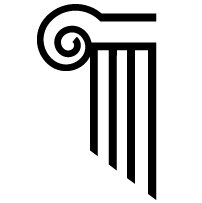Best Bankruptcy & Debt Lawyers in Ireland
Share your needs with us, get contacted by law firms.
Free. Takes 2 min.
Or refine your search by selecting a city:
List of the best lawyers in Ireland
Ireland Bankruptcy & Debt Legal Articles
Browse our 1 legal article about Bankruptcy & Debt in Ireland written by expert lawyers.
- Debt Collectors in Ireland: Verify Debts and Stop Harassment
- In Ireland, regulated lenders and their agents must follow the Central Bank’s Consumer Protection Code and, for mortgages, the Code of Conduct on Mortgage Arrears. Harassment, misleading statements, and excessive contact are prohibited. You can set contact limits and request all communication in writing. Send a written notice and keep... Read more →
About Bankruptcy & Debt Law in Ireland
Bankruptcy and debt law in Ireland provides a framework for individuals and businesses who are unable to meet their financial obligations. It helps in the resolution of debts by either restructuring them or facilitating the liquidation of assets to repay creditors. The Bankruptcy (Amendment) Act 2015 and the Personal Insolvency Act 2012 are key legislative instruments in this area. These laws aim to strike a balance between the rights of creditors to recover debts and the need for debtors to have a fair opportunity for financial rehabilitation.
Why You May Need a Lawyer
Engaging a lawyer specialized in bankruptcy and debt can be crucial in several situations. You may require legal assistance if you are unable to meet your debt repayments, facing creditor pressure, or need help negotiating with creditors. Additionally, if you're contemplating filing for bankruptcy or seeking a Debt Relief Notice (DRN), Debt Settlement Arrangement (DSA), or Personal Insolvency Arrangement (PIA), having a knowledgeable advocate can ensure that your interests are well-protected and the process is navigated correctly.
Local Laws Overview
Irish bankruptcy laws provide various options for individuals struggling with debt. The Personal Insolvency Act 2012 introduced several non-bankruptcy solutions: the Debt Relief Notice (DRN) for low-income debtors with unsecured debts up to €35,000, the Debt Settlement Arrangement (DSA) for unsecured debts of any amount, and the Personal Insolvency Arrangement (PIA) for both secured and unsecured debts. Bankruptcy in Ireland traditionally involves the selling of assets to clear debts, with discharge typically occurring after one year, though this can be extended in some cases. The Insolvency Service of Ireland (ISI) is the state body responsible for overseeing these processes and providing assistance to debtors.
Frequently Asked Questions
What is the difference between personal insolvency and bankruptcy?
Personal insolvency solutions are alternatives to bankruptcy, offering structured methods to repay debts without resorting to the liquidation of assets. Bankruptcy, on the other hand, involves the adjudication of a person as bankrupt and the administration of their assets by an official assignee to pay creditors.
How long does the bankruptcy process take in Ireland?
The bankruptcy process in Ireland typically results in discharge after one year, though it can be extended if the debtor fails to cooperate with the process or conceals assets.
What is a Debt Relief Notice (DRN)?
A DRN is a formal debt resolution mechanism suitable for people with low income and assets, and unsecured debts of €35,000 or less. It provides debt forgiveness after a three-year supervision period.
Can I keep my home if I declare bankruptcy?
Keeping your home depends on several factors, such as the level of equity in the property and whether mortgage payments are up to date. Legal advice should be sought to explore possible solutions.
What is the role of the Insolvency Service of Ireland (ISI)?
The ISI is responsible for administrating bankruptcy estates and personal insolvency arrangements, providing guidance and information, ensuring compliance with insolvency laws, and helping debtors and creditors understand their rights and responsibilities.
Do all debts get discharged in bankruptcy?
Not all debts can be discharged through bankruptcy. Debts like fines, family maintenance orders, and certain taxes are not eliminated in bankruptcy.
What is a Personal Insolvency Practitioner (PIP)?
A PIP is a professional authorized to help people apply for DSAs or PIAs. They can negotiate with creditors and oversee the execution of these arrangements.
How does bankruptcy affect my credit history?
Bankruptcy adversely affects a person’s credit history and will be noted on the Irish Credit Bureau for a period of five years from the date of discharge.
What can prevent someone from being eligible for insolvency arrangements?
Failing to act in good faith or previous unsuccessful attempts at insolvency arrangements can prevent eligibility for solutions like a DSA or PIA.
Can I appeal a bankruptcy decision?
Decisions made in bankruptcy cases can be appealed, and it is important to engage legal representation to navigate this process effectively.
Additional Resources
Several resources can be helpful for those seeking information and guidance regarding bankruptcy and debt in Ireland. The Insolvency Service of Ireland (ISI) offers comprehensive support, and the Citizens Information Board provides legal and financial advice. Legal Aid Board may assist with legal counseling for those who qualify.
Next Steps
If you find yourself in need of legal assistance regarding bankruptcy and debt in Ireland, it is crucial to start by consulting a qualified solicitor or Personal Insolvency Practitioner (PIP). Research and gather all financial documents related to your debts and income. Reach out to organizations such as the ISI or Citizens Information for preliminary guidance, the aim is to understand your options and get on the path towards financial recovery.
Lawzana helps you find the best lawyers and law firms in Ireland through a curated and pre-screened list of qualified legal professionals. Our platform offers rankings and detailed profiles of attorneys and law firms, allowing you to compare based on practice areas, including Bankruptcy & Debt, experience, and client feedback.
Each profile includes a description of the firm's areas of practice, client reviews, team members and partners, year of establishment, spoken languages, office locations, contact information, social media presence, and any published articles or resources. Most firms on our platform speak English and are experienced in both local and international legal matters.
Get a quote from top-rated law firms in Ireland — quickly, securely, and without unnecessary hassle.
Disclaimer:
The information provided on this page is for general informational purposes only and does not constitute legal advice. While we strive to ensure the accuracy and relevance of the content, legal information may change over time, and interpretations of the law can vary. You should always consult with a qualified legal professional for advice specific to your situation.
We disclaim all liability for actions taken or not taken based on the content of this page. If you believe any information is incorrect or outdated, please contact us, and we will review and update it where appropriate.
Browse bankruptcy & debt law firms by service in Ireland
Ireland Attorneys in related practice areas.
Browse bankruptcy & debt law firms by city in Ireland
Refine your search by selecting a city.















